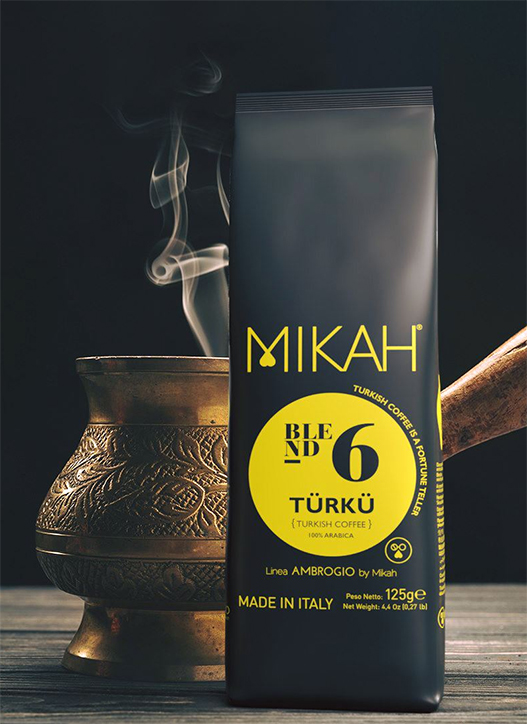Where does the Greek coffee cap come from?

"Grandpa's coffee" is always present, and looks to the future with claims.
What does Greek coffee remind us of? For others, their beloved grandfather, for others a green square with plane trees, in some mountain village, for others a quiet coffee shop in the small town where they grew up... no matter how we do it, Greek coffee is part of our tradition and memory.
What do we actually call Greek coffee? It is very finely ground coffee, which is boiled in a kettle, with or without sugar, and served in a small cup, together with its ground beans (the grounds, as it is called). Depending on the country, the coffee can be more or less roasted, or flavored with various spices, with cardamom being the most common. But where does Greek coffee come from? Is he really, "Greek"? And what is his future?
Where does the Greek coffee cap come from?
Coffee certainly found its way to Europe via the Ottoman Empire. Odzemir Pasha, ruler of Yemen, was the one who initially got excited about the then-new drink and presented it with all due ceremony to Sultan Suleiman the Magnificent. The Qur'an's strict stipulations about what is considered psychoactive or addictive (and thus unfit for consumption by the faithful) led to the initial prohibition of coffee by Murat the Fourth, but coffee's popularity was such that the ban was quickly lifted and coffee spread throughout the Ottoman world.
From Ottoman merchants and diplomats, coffee passed to Europe (Venice, France, England, etc.), after it had first established itself throughout the territory of the Ottoman Empire, as a drink not only of Muslims, but also of Christians. Today, this way of preparing coffee is referred to internationally as "Arabic" or "Turkish", while UNESCO has included its preparation and the culture that accompanies it in the list of intangible cultural heritage of the neighboring country.
 The coffee that brings us closer
The coffee that brings us closer
Coffee has always brought people together, and that seems to be the case with Arabic / Turkish / Greek coffee, among others. Almost all the countries of the Eastern Mediterranean and the Balkan Peninsula have their own variant of Arabic coffee, which they name with their national colors, since it is now part of their culture and their temperament. Thus, "Armenian" coffee is rich in cardamom, "Bosnian" differs slightly in brewing method (which is a bit more elaborate and fussy), "Albanian" is usually darker roasted, and "Cypriot" is almost identical to Greek. . Arabic coffee has also reached Eastern Europe, since it is found in the Czech Republic and Slovakia, but also in Poland, with several differences, however.
In our country, Greek coffee was the basic drink for the daily life of thousands of Greeks, until the 60s, when "hot demons" began to appear, such as instant coffee and filter coffee. From the 70s to the 90s, the frappe became the favorite coffee of the youth, while the global spread of espresso dramatically changed the coffee culture in our country as well. The Greek one, however, continues to hold a significant market share, and recently it seems to particularly attract a segment of the youth.
It is a fact that until the 1950s, this particular coffee was referred to almost exclusively as "Turkish" until an advertising campaign, with the slogan "we call it Greek" naturalized it again, particularly successfully. The tensions in the relations with the neighbors, but also the fact that this particular coffee has indeed been fermented with our everyday life for hundreds of years, contributed to the total prevalence of the term "Greek coffee".
Whatever name it has, our favorite coffee is made to unite and not to divide – and we will, of course, always call it Greek.








